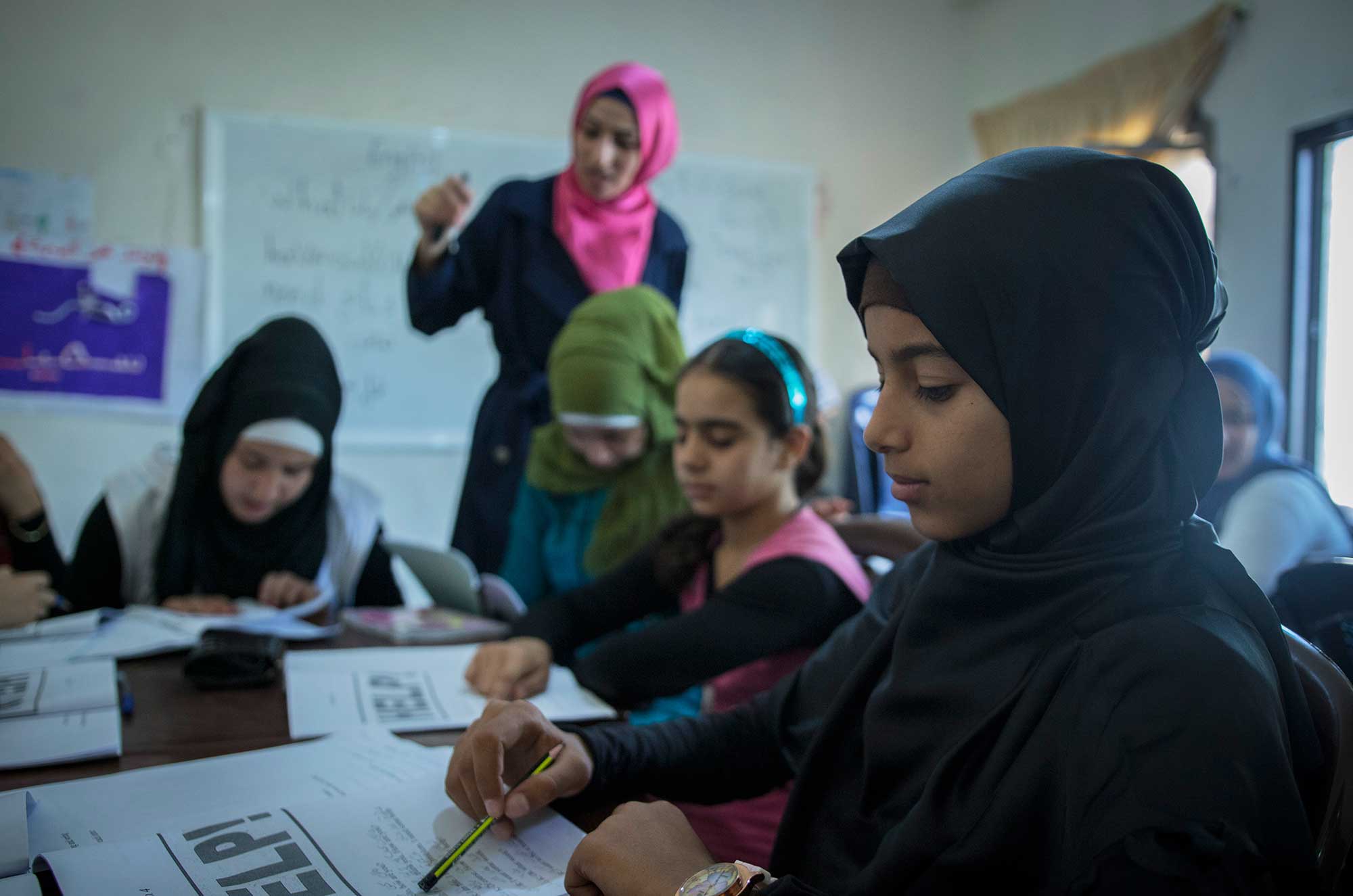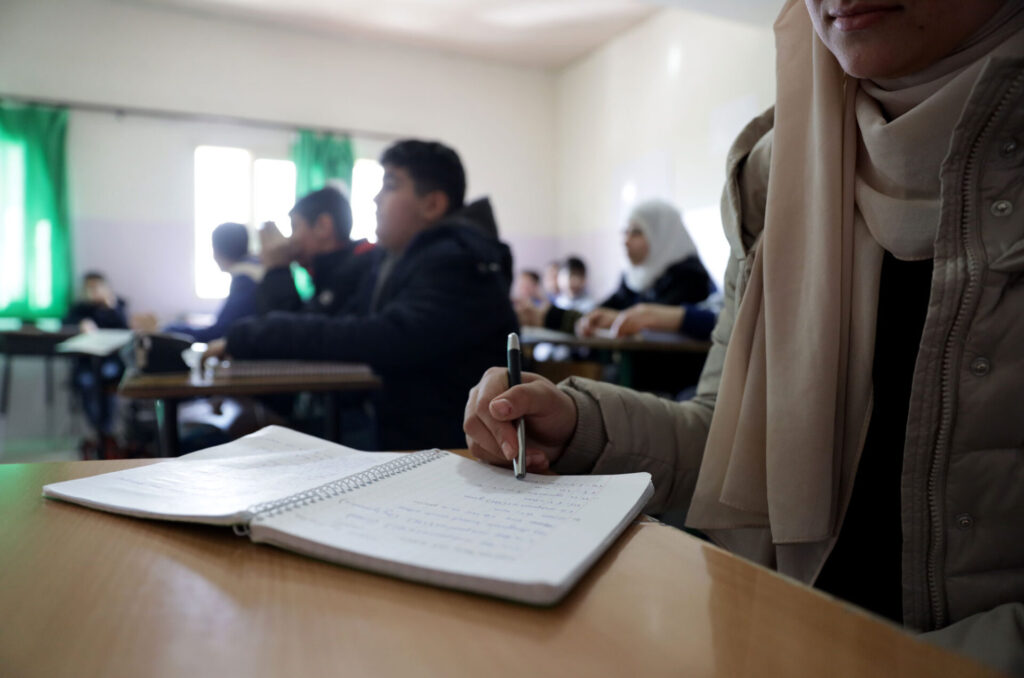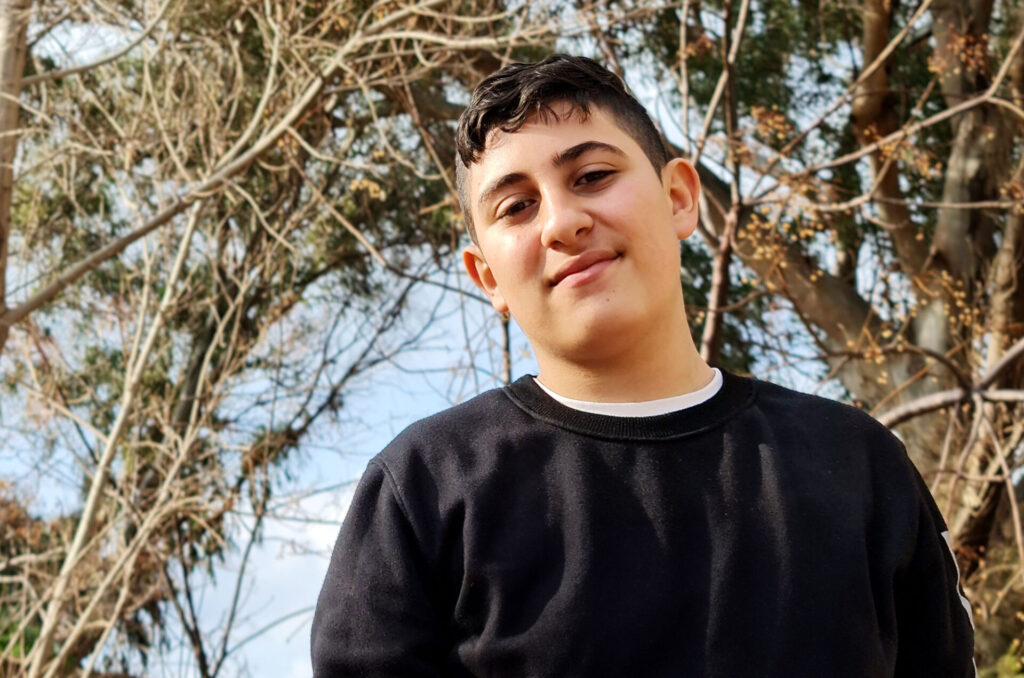Jul, 2016
Akkar in northern Lebanon has traditionally been one the country’s poorest regions. With poor public infrastructure and a lack of jobs, Akkar was among the least able to host refugees.
With poor public infrastructure and a lack of jobs, Akkar was among the least able to host refugees. Yet its proximity to the Syrian border has led to a massive influx in the region. Currently, about 34% of the region’s population is made up of refugees.
Syrian, Palestinian and Lebanese youth in the region struggle to access basic services and have limited opportunity for community involvement.
Anera’s refugee education program in Lebanon — funded by UNICEF — brings together youth from all backgrounds for classes that build community and help young people gain the skills they need to take control of their futures. Courses in life skills, basic math and literacy, vocational training, and good hygiene practices combine to benefit young people’s lives in practical, immediate and tangible ways. The timing and subjects of classes are based on the everyday reality the students face.
These photos are from Anera’s sessions in Bhannine, a town near Tripoli.
In Photos: Refugees Learn Math, Literacy and Life Skills
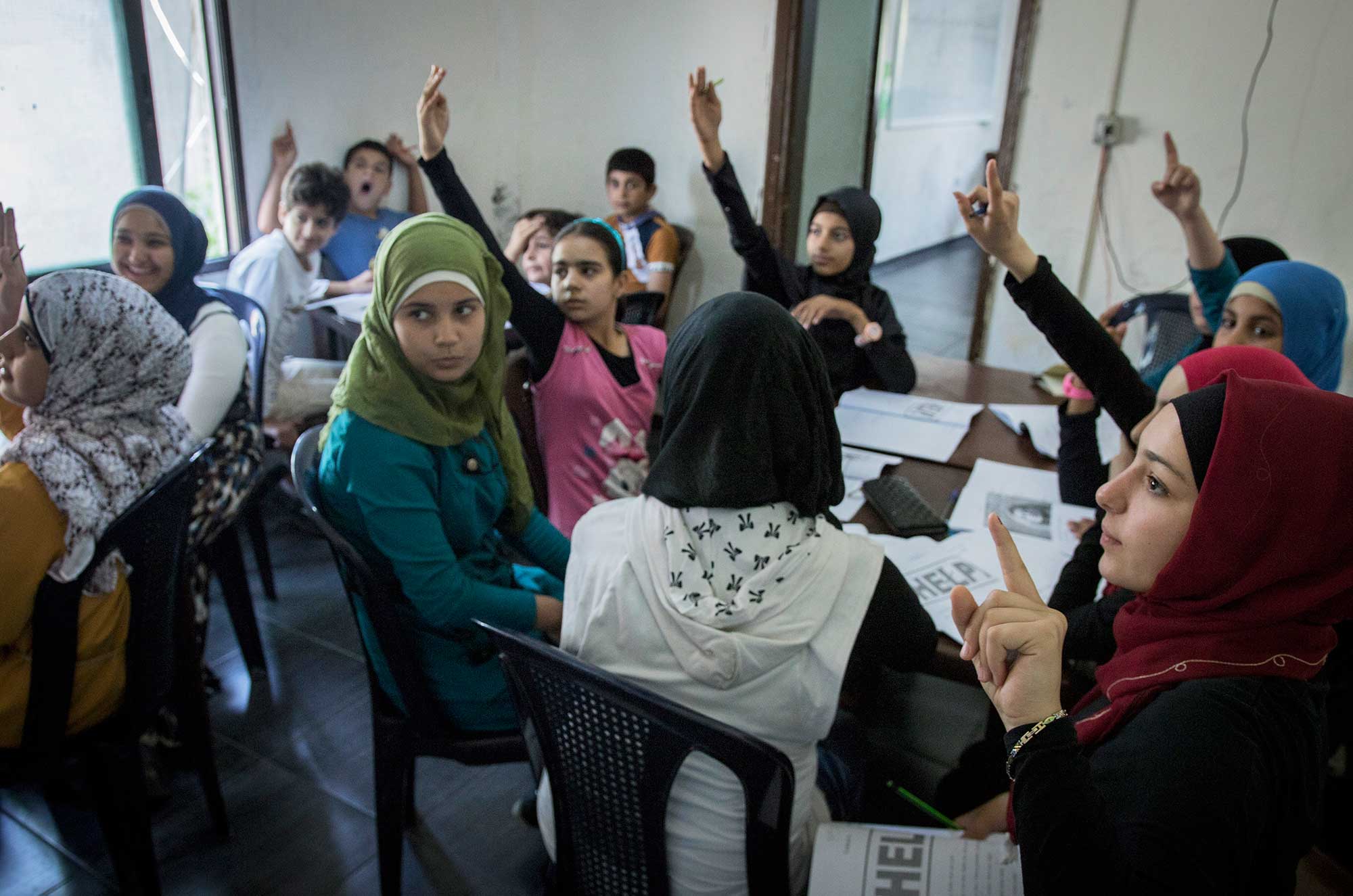

In this English class, 16 students are studying hard to improve their skills. The class is comprised of Syrian, Palestinian and Lebanese youth.
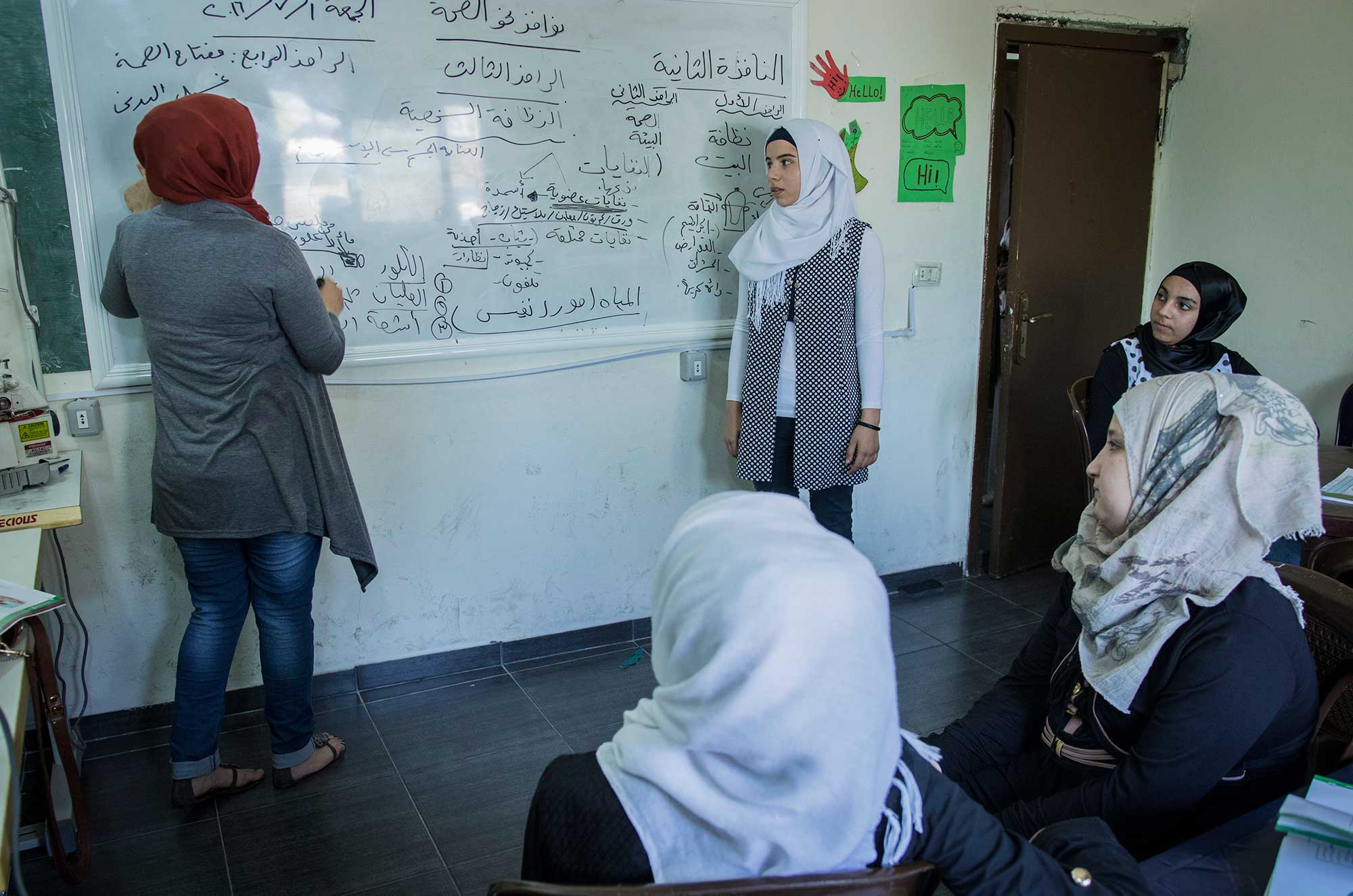

In this class, students are learning about personal health, the environment, water purification and waste sorting.
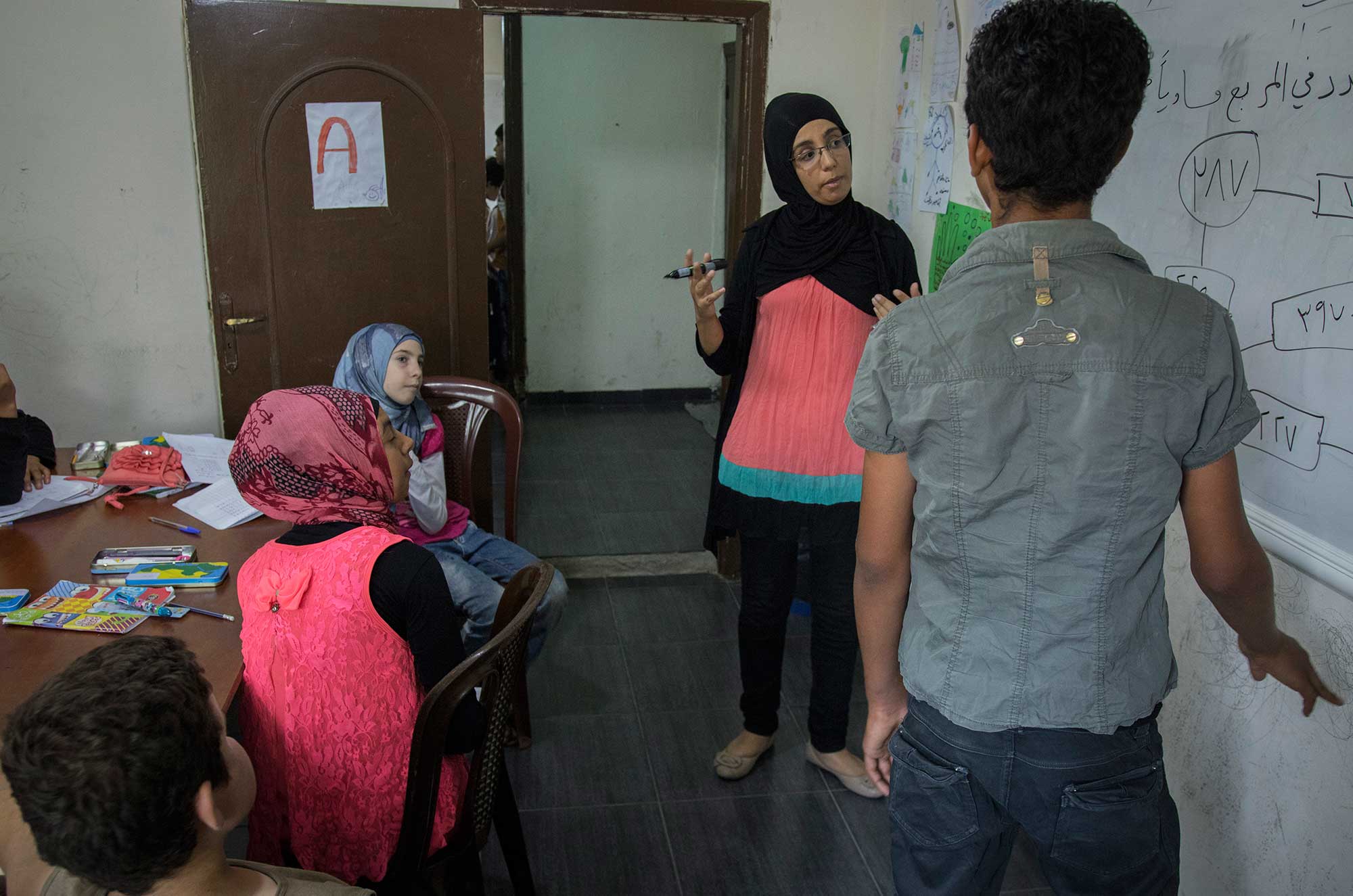

Asmahan is a Lebanese math teacher at the center in Bhannine. Her student says, "Asmahan makes the classes really fun and shows us easy ways to learn."
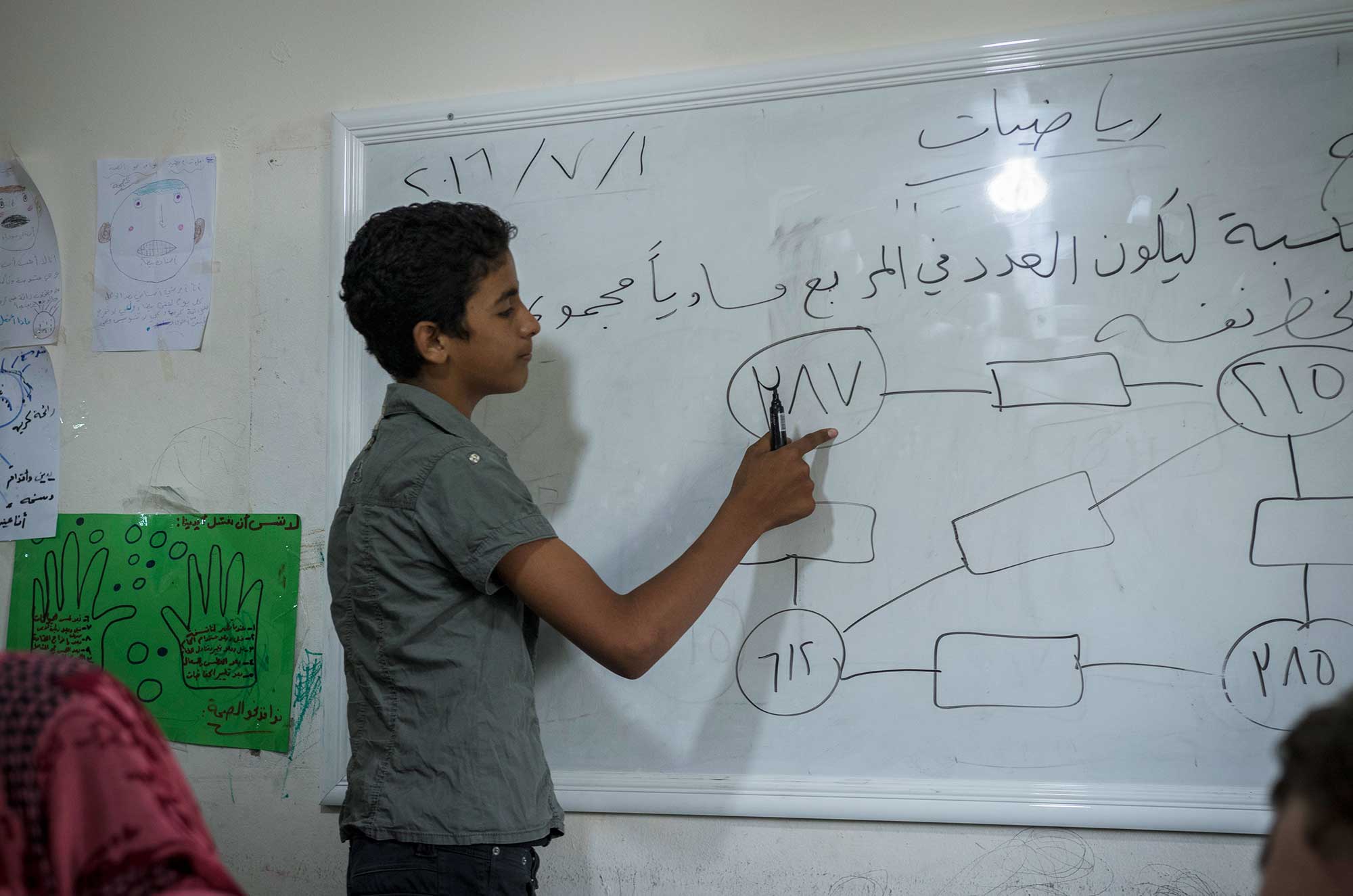

Abed is a 14-year-old Syrian refugee from Damascus. He's lived in Bhannine for four years and has had trouble going back to school. "What I learn here helps me keep up in school. My math skills are great now!" he says.
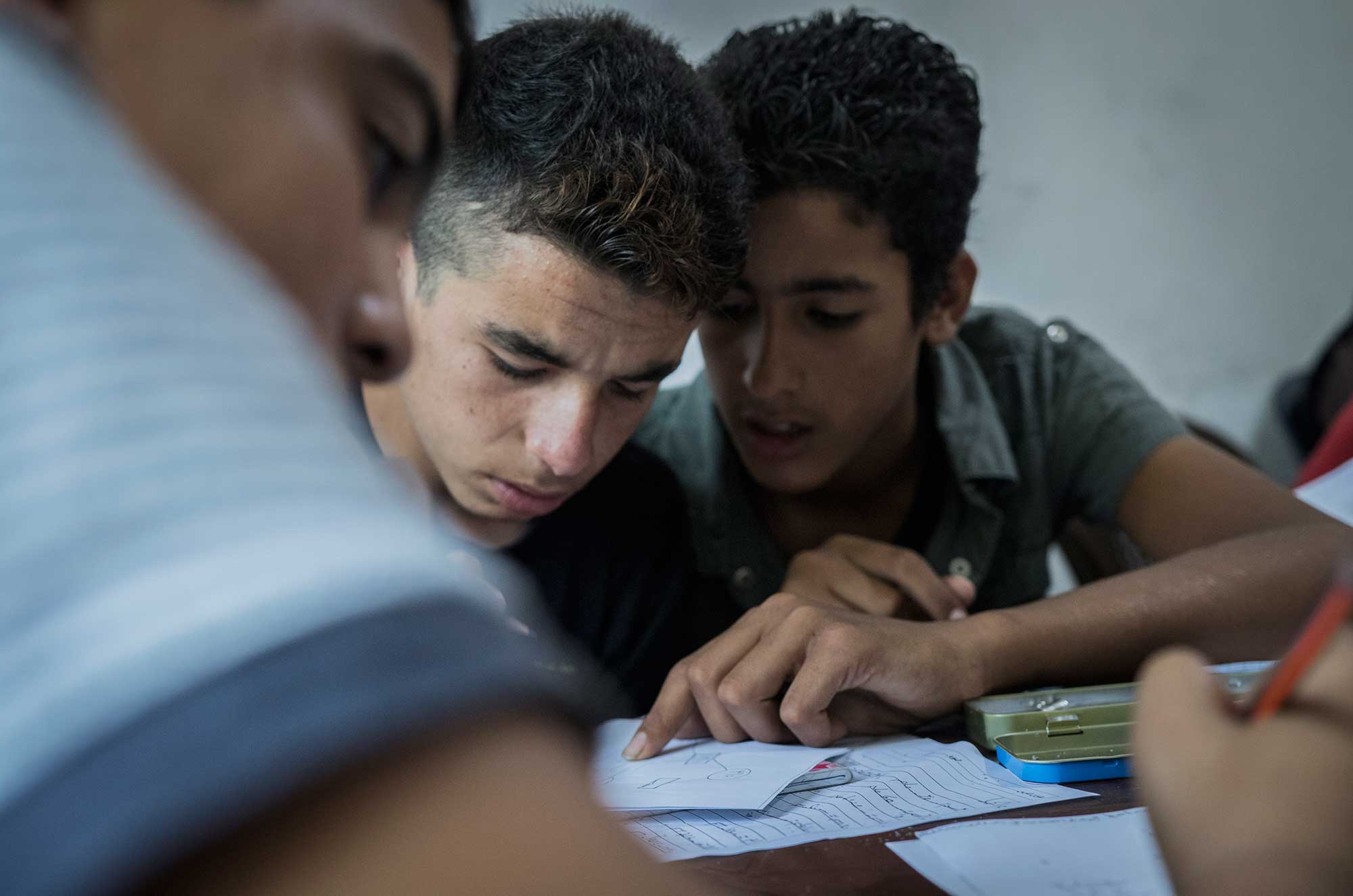

14-year-old Abed, a Syrian refugee, helps Hassan, who has been out of school for four years, with his classwork.
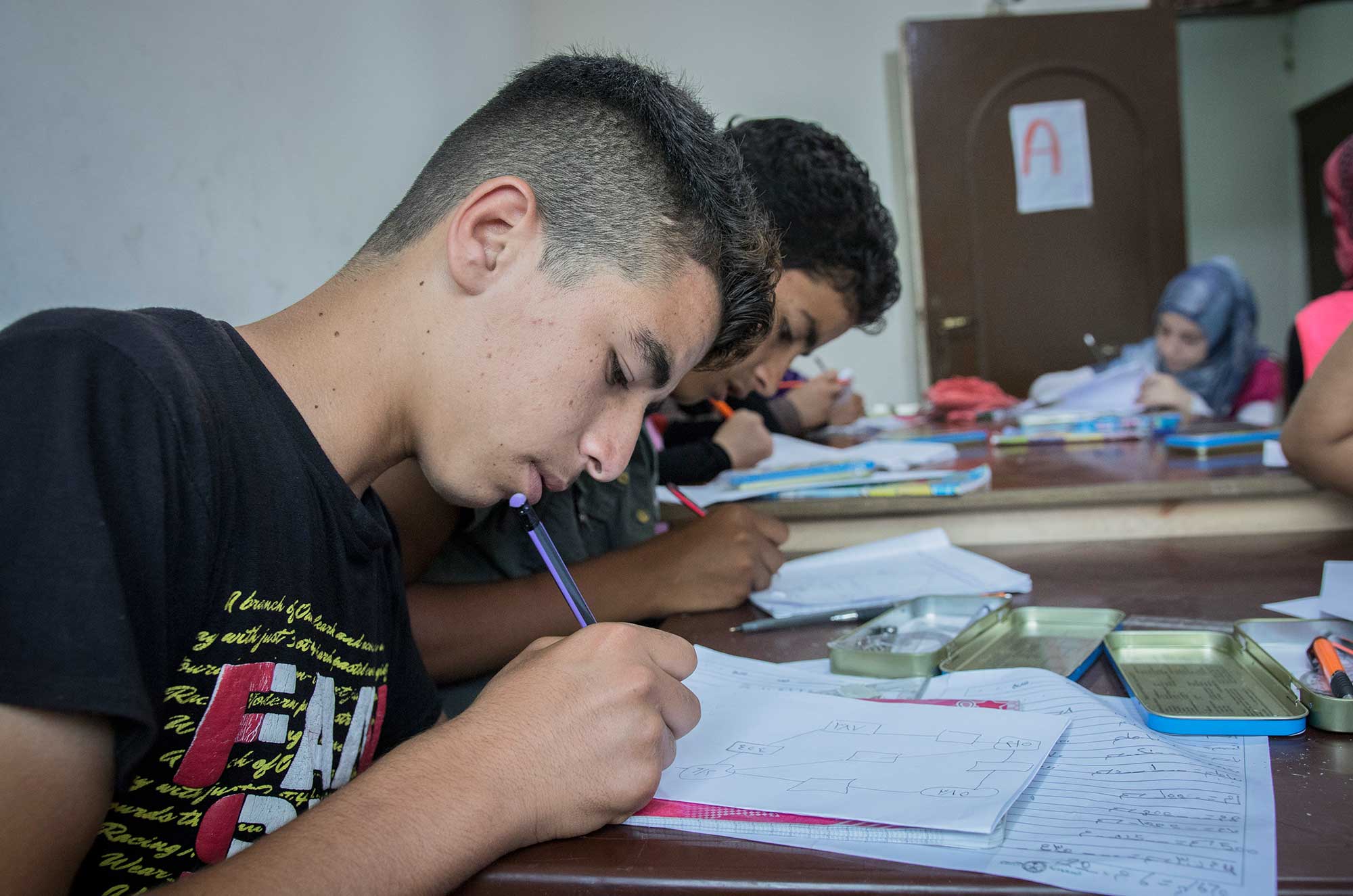

Hassan is a 15-year-old Syrian teen who has been in Bhannine for four years. He is not in formal schooling, and gets his education solely from these courses held by Anera. "I come here to learn what I missed in school," he says.
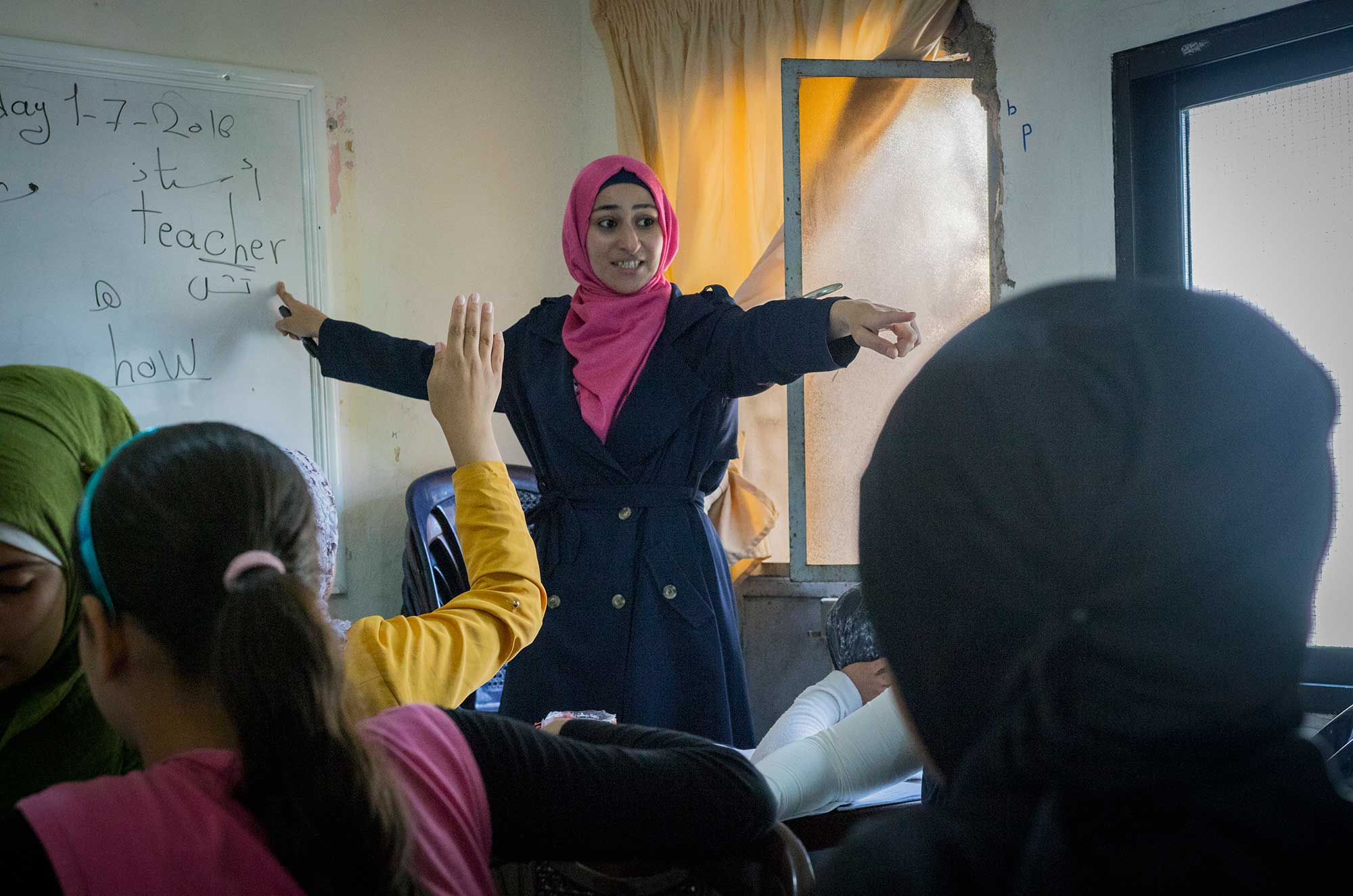

Noor, a Lebanese teacher, uses interactive methods to teach English to her students in Bhannine.
